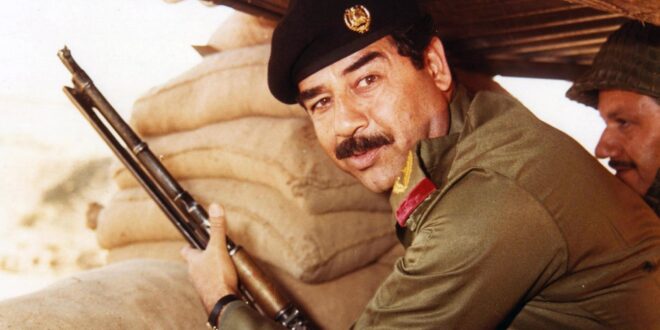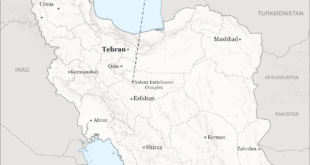Whitehall officials and ministers connive with the BBC and the press during wars, to promote ‘propaganda’ to domestic and foreign audiences, declassified files show.
Britain’s media is failing to report the true extent of UK support to Israel amid the genocide in Gaza.
This is not the exception in Britain’s wars, but the rule. When Declassified revealed three years ago that the UK military had a secret team operating in Yemen, no British media outlet picked up the story.
Neither are the UK press or broadcasters showing how the government has been avoiding peace prospects in Ukraine.
One reason the UK media fail to report independently is that they are regularly willing participants in Whitehall’s ‘media operations’, especially in wars.
A major episode that sheds light on this is the 1991 Gulf war, on which some government files have now been declassified.
‘Themes need urgent amplification’
Iraq’s brutal tyrant Saddam Hussein invaded Kuwait in August 1990, claiming it as a province under Baghdad’s control and brutally repressing its small population.
The US and UK began a massive military build-up, deploying their forces to Saudi Arabia to prepare to oust Iraq from Kuwait.
Alongside this military planning went extensive media operations.
Soon after the invasion, prime minister Margaret Thatcher told her ministers to begin a “counter-propaganda” campaign against Iraq.
“The main targets for a propaganda effort should be the Iraqi people, other Arabs sympathetic to Iraq and the wider Muslim world”, wrote Simon Gass, adviser to foreign secretary Douglas Hurd.
Key themes would be that the crisis “is wholly Saddam Hussein’s fault because of the illegal and unjustified annexation of Kuwait” and “Saddam Hussein’s brutality”.
“All these themes need urgent amplification. Propaganda material will need to be disseminated”, Gass wrote.
The following month, Stephen Wall, Hurd’s private secretary, noted the campaign should promote three key arguments.
These were: to maintain sanctions against Iraq; to avoid “Arab/compromise solutions” on a negotiated settlement to the crisis; and “justifying presence [sic] of Western forces in the Gulf”.
 Eurasia Press & News
Eurasia Press & News



